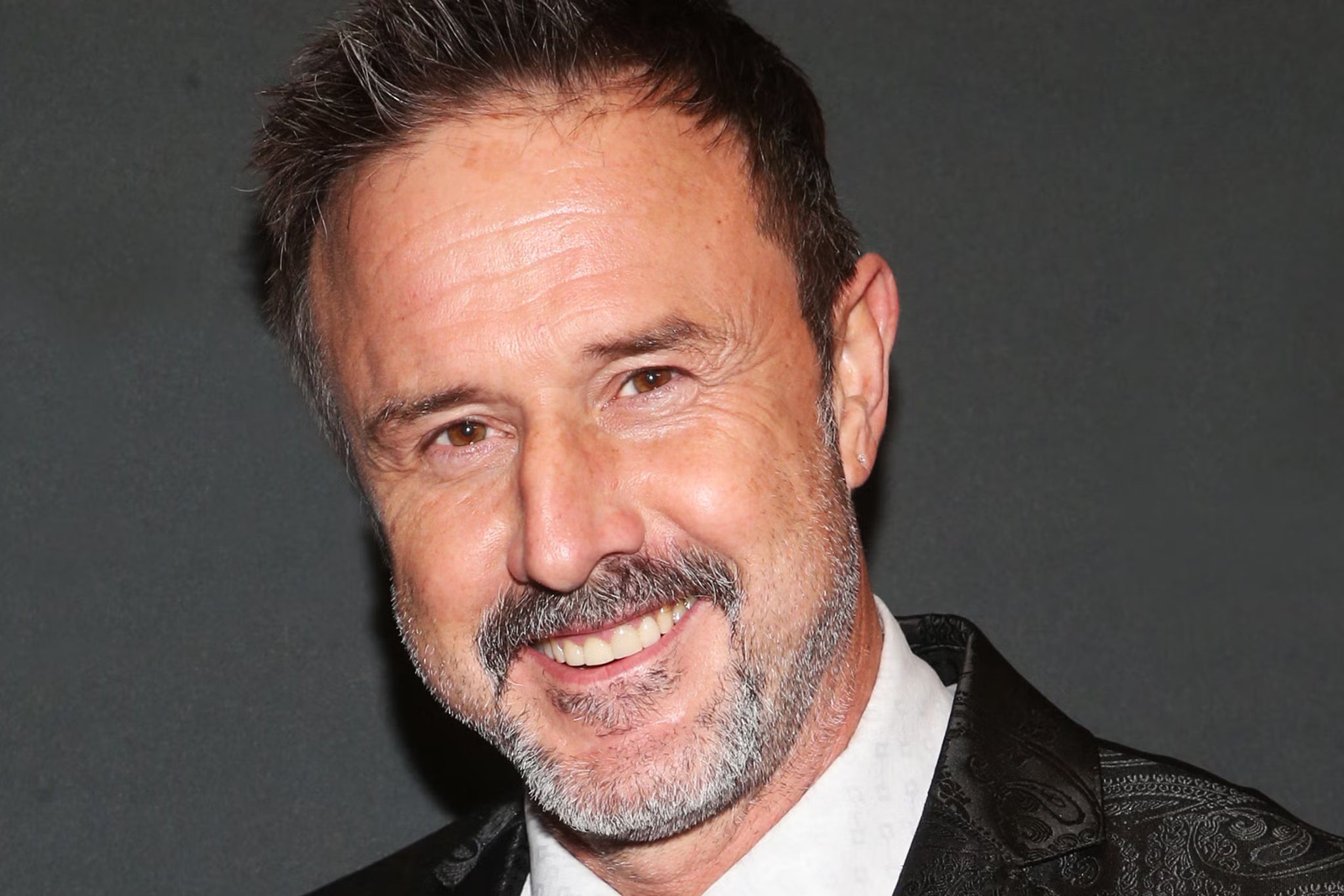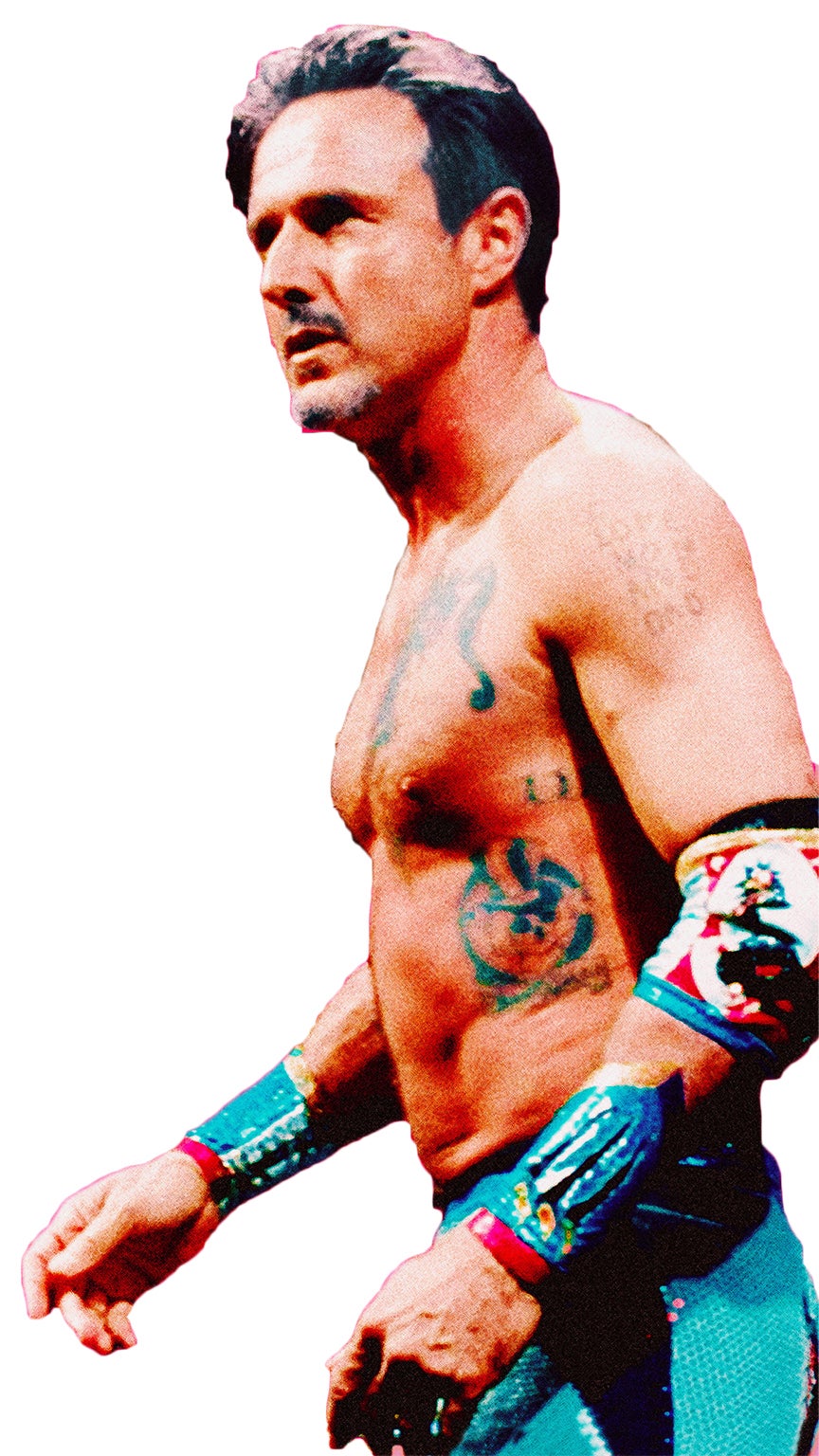David Arquette: ‘I can out-crazy most people’
The ‘Scream’ star talks to Adam White about his infatuation with love, taking up competitive wrestling in his new documentary, and his struggles with addiction


Your support helps us to tell the story
From reproductive rights to climate change to Big Tech, The Independent is on the ground when the story is developing. Whether it's investigating the financials of Elon Musk's pro-Trump PAC or producing our latest documentary, 'The A Word', which shines a light on the American women fighting for reproductive rights, we know how important it is to parse out the facts from the messaging.
At such a critical moment in US history, we need reporters on the ground. Your donation allows us to keep sending journalists to speak to both sides of the story.
The Independent is trusted by Americans across the entire political spectrum. And unlike many other quality news outlets, we choose not to lock Americans out of our reporting and analysis with paywalls. We believe quality journalism should be available to everyone, paid for by those who can afford it.
Your support makes all the difference.David Arquette has burst into tears. It happens 20 minutes into the conversation with him, in between wonderfully erratic detours about spirituality, wrestling, and the time a 21-stone Marlon Brando tried to clamber on to his back. Wes Craven, the legendary horror director who propelled Arquette to fame via the Scream movies, once described him as a man “definitely in pain”. “When I’m around him,” Craven said in 1997, “I feel this enormous sense of pain and longing for a simpler world – for love.”
On being reminded of the quote, Arquette grows flush with emotion, his voice cracking. “I’m sorry,” he sputters, “I’ve been having a really hard time lately with missing him. That’s such a beautiful thing to say. And, you know, I was tortured. My mother was dying around that time, so that was a really difficult and dark period.” He composes himself. “And it’s true. I do, like, long for a world of love.”
Arquette, 49, is a colour wheel of contrasting emotions. Speaking over Zoom from his home in Los Angeles, a Brando portrait lurking majestically behind his head, he is as goofy and animated as the characters he played in the original Buffy the Vampire Slayer (1992), Never Been Kissed (1999) and Eight Legged Freaks (2002). He’s also a little haunted and sensitive, approaching things with almost childlike wonder. He often uses noises or motions to replace words: at one point, instead of saying “violence”, he growls; while looking for the right term to describe his teenage angst, he mimics firing a machine gun. Arquette is always performing, even while confined to his office chair and in front of an audience of one.
His new documentary, the spectacularly titled You Cannot Kill David Arquette, revolves around his return to the wrestling ring, 20 years after a disastrous publicity stunt for his cult comedy Ready to Rumble, which turned him into an industry punchline. The stunt saw Arquette get into the ring for a week of matches, play a bumbling fool for laughs, but still claim the prestigious title of WCW World Heavyweight Champion. It provoked ire, WCW (World Championship Wrestling) went bust soon after, and the stunt was dubbed its death knell. As a devotee of the sport from childhood, Arquette was heartbroken. Such colossal rejection has left a mark, one he only realised the magnitude of years later.
“It’s deep, the love I have for wrestling,” he explains. “And through that 20 years, I’d go to matches where people were sometimes really mean to me, or spit on me, and my wife was always like, ‘Why do you come here?’ But I realised I never got the respect from those people that I wanted. I was never able to prove to them that I’m tough and crazy, too. And that’s one thing I’ve learned through this whole experience: I can out-crazy most people.”
In the film, Arquette is seen mourning what he sees as a declining acting career, and suffering from the side effects of a heart attack. His decision to return to wrestling, to prove something he can’t yet articulate, is met with baffled reactions from his wife, producer Christina McLarty, and his ex-wife Courteney Cox (already a star on Friends when they married in 1999; they divorced in 2013). But somehow his enthusiasm is infectious – Arquette is starry-eyed and determined, a complicated clown of a man tired of always being laughed at.

“I’m gonna sound so clichéd, but this wasn’t so much about wrestling as it was about wrestling with myself,” Arquette says. “The self-abuse, being critical of myself. We all have that voice in our heads, but some of us have it louder than others. I still get it sometimes, those moments where I beat myself up or say something and I’m like, ‘Why did I say that?’ I’ll obsess over it. But through all of this, I’ve discovered how to be kinder to myself. And that’s a tough thing for a wrestler to say.”
Arquette is the youngest of Hollywood’s coolest acting siblings – he, Rosanna, Patricia, Richmond and the late Alexis Arquette burst on to the scene like the Von Trapps if they chainsmoked and swore a lot. Their parents were jobbing artists and ageing hippies, dad Lewis a working actor who never particularly hit the big time, mum Mardi an actor, dancer and later a marriage counsellor. She is described in the documentary as being a volatile presence in the family home, but Arquette lights up when he speaks of her early B-movie career. “They were almost like sexploitation movies,” he recalls with pride. “This one called Olga’s House of Shame happens to be one of John Waters’ favourite films!”
The Arquette siblings were always fighting for attention as youngsters. “It was a house full of actors, so there was a lot of screaming and crying and smashing,” he remembers. “All of us were these incredibly dramatic and comedic voices, and we all wanted that moment in the spotlight, for better or worse.”
Arquette played the role of joker. He loved slapstick, Buster Keaton and self-deprecating silliness, which also provided a mask when things got rough. “If you see a lot of comedians, they have that really dark side,” he explains. “There are some people that have their levels right. I think my family’s make-up has always been pretty extreme. More so when I was younger, all my senses pinged at all moments. When I’m sad, I go into a deep, dark place. I’ve had to learn all the ways to get out of it.”
He suspects that his make-up is why he’s sought escape through dangerous means for much of his life. He has been open about his battles with drinking and drugs, and the party lifestyle that contributed to his separation from Cox. He cringes when he thinks of those days. “Sometimes I’m like, ugh, I overshare and I’m too much of an open book, but it’s also part of who I am.”
“When you’re an addict, one of the goals is to actually kill yourself,” he says. “It’s part of your brain, somewhere inside there, and his job is to try to kill you. It’s just a fact… when you feel a lot, [drugs and alcohol] numb some of that pain, so much that you just don’t feel any more.”
He’s an advocate for therapy, and says that he no longer feels the need to numb himself all the time. He’s still taking risks, though. One particularly tough scene in his documentary shows the aftermath of a 2018 wrestling “deathmatch” that resulted in him being taken to hospital with a slashed neck. Luke Perry, his close friend of more than 25 years, is seen comforting him. Like Arquette’s sister Alexis, who died at 47 of complications from Aids, Perry too was taken too soon, dying last year at the age of 52. Has experiencing so much early death affected his own perspective on life?
“It goes a lot quicker than anybody thinks,” he reasons. “I’m not overly religious in any way, but I’m spiritual, and I think when people pass, they become part of something bigger. Even though they’ve passed through this plane, I often talk to people I’ve lost or who I was close with, and ask for signs.”
He felt Craven’s presence on the set of the forthcoming Scream 5, the first in the franchise he’s not directed. He would listen to Craven’s favourite music in between scenes, and recently found himself scrolling through his old Twitter account, which has been dormant since his death in 2015, “looking up old tweets and who he followed, because I wanted to follow who he followed”.
There have been other experiences, too. When he was shaving off his body hair while preparing to get back into the ring, he suddenly felt his sister, who was trans. “I looked at my hands and I was like, whoa, these look like Alexis’s hands, because Alexis would always shave her hands,” he says. “And I remember looking at my firstborn son [in 2014], and wishing my mom and dad could see him as well, and then it’s like…” He loudly exhales, throwing himself back into the seat of his chair. “I felt like they were watching, right there, right then. And I was like, OK, there’s more to all this.”
He returns to Craven, and what he said about him all those years ago. “I do love love,” Arquette says. “I want the world to laugh, I want us to have fun. In America, we have like 40 per cent of people who are pretty solidly, like, alright with racism – what is going on? We’re in a world here where we’re all being attacked for socialism. But it’s like, OK, are there certain elements of socialism that could be kind of cool? Like healthcare and education? Like I love libraries! They’re social, right?”
He breaks into giggles, injecting a bit of silliness into his act of sincerity. “I like adrenaline and I like thrills but, honestly, what’s the alternative to love?”
You Cannot Kill David Arquette is available on digital download via Blue Finch Film Releasing from 23 November


Join our commenting forum
Join thought-provoking conversations, follow other Independent readers and see their replies
Comments